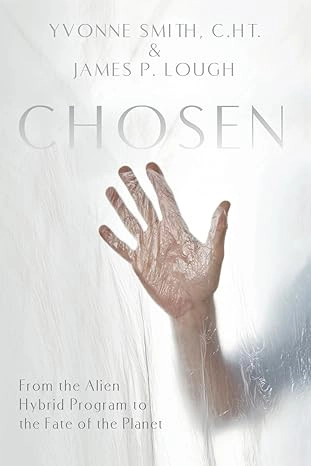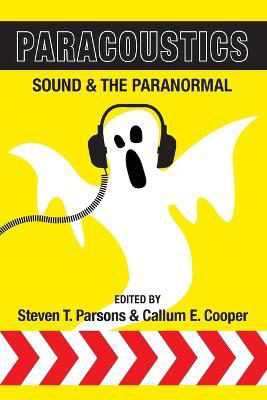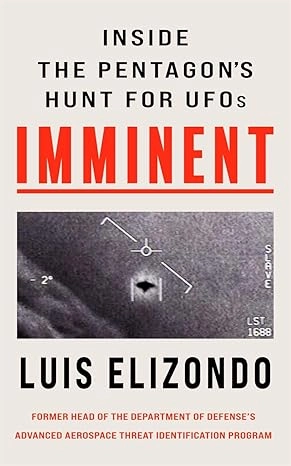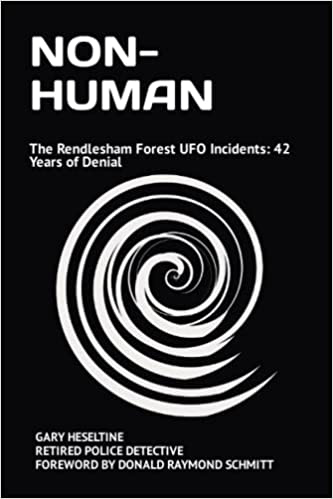Disappearance of Larry Griffin in 1929
Disappearance
Monday 10th, January 2022
8 minute read.
In 1929 on the 25th of December (Christmas Day), a local of the village of Stradbally, County Waterford went missing, never to be seen again. This individual was a man named Laurence "Larry" Griffin and he worked as a postman in the area.
There is a long running hypostasis about what happened to Larry but to this day the families of the accused continue to stick to their stories and deny any involvement in Larry's disappearance.
Larry Griffin is said to have attended church on Christmas Day 1929 followed by delivering presents to a neighbour's children and then heading into the post office around noon on his post office issued bicycle. After Griffin had finished all his deliveries he returned to the post office as he always did and that is the last known place he was.
Griffin didn't return home that night and the next day at approximately 7:30am Griffin's post office issued bicycle was found lying on the road facing the direction of Kilmacthomas. It's reported that there was no sign of damage on the bicycle and that it had been placed where it was found.
A search for Griffin was launched on the 26th of December and included Gardaí, postmen and many civilians. It was noted that Griffin's empty mailbag, waterproof cover, overalls and cape were strapped to his bicycle's carrier in an odd way that a postman would generally avoid.
Chief Superintendent Harry O'Mara from Waterford travelled to Stradbally on the 27th of December. O'Mara questioned the local Gardaí, Sergeant Cullinane and Gardaí Dullea, Frawley, Murphy and Sullivan. All of the five claimed that Griffin was sober when they had seen him, however this didn't match up with what other villagers reported, that Griffin was "a bit jolly" and "intoxicated".
O'Mara established that Griffin had not called in to collect any mail at any locations between Stradbally and the point where his bicycle was found, even though these were part of his normal route. Another local man reported that he had been on the Stradbally to Kilmacthomas road at 4am on the 26th of December and had not seen Griffin's bicycle there at that time, this led O'Mara now to suspect foul play.
On the 6th of January 1930 Father O'Shea spoke to O'Mara and said that O'Mara should question a local sixteen year old boy named John Power and that Gardaí in Stradbally were concealing what really happened to Griffin. O'Mara then proceeded to interview Power the next day, Power said that he was standing outside the window of a local pub, Whelan's, with three other men for some time on the evening of the 25th of December, and they had seen Griffin and Garda Dullea outside the post office at 6:30pm. Dullea was pushing Griffin's bicycle, and Griffin appeared drunk and was retching. The two rounded a corner and neither returned within the next hour, at which point Power's group disbanded. Power's account was confirmed by the three men he was with at the time.
A follow up interview with Dullea, Dullea admitted to meeting with Griffin on that day and claimed he had walked with him for approximately fifty yards along the Kilmacthomas road. He reiterated that Griffin was not drunk. When asked why he had not reported this before, he said he did not think it was of any importance. Dullea claimed that after leaving Griffin, he returned to the centre of the village to meet up with Cissie Whelan (the daughter of the Whelan's publican) and that they walked to Stradbally Cove, not returning until 10pm. This contradicted the statements given by John Power and his friends, who claimed that Dullea did not return. Despite this, Cissie Whelan backed up Dullea's claims.
It's thought that a drunk Griffin and Garda Dullea called into Garda Frawley's flat, consumed more alcohol then the three of them then went outside, where the Gardaí decided that Griffin was too drunk to cycle home so Frawley went into Whelan's pub to see if they would put him up for the night, but then realised that he had been followed into Whelan's by Sergeant Cullinane (who was ensuring the premises was not serving alcohol) so Frawley left Whelan's and Garda Dullea then led Griffin around the corner (passing John Power and his three friends), and then Griffin and Dullea entered Whelan's pub by the back gate.
It's strange that none of the Gardaí had provided any of this information when they were first questioned.
O'Mara now turned his attention to the Stradbally Gardaí. O'Mara found that entries in the Garda barracks diary had been altered and that many of the patrols which were recorded had not been made. This evidence coupled with the conflicting stories convinced O'Mara that the Gardaí were involved in Griffin's disappearance. So O'Mara reported this to Eoin O'Duffy who was the Chief Commissioner of the Garda Síochána at the time. O'Mara also reported that Gardaí Dullea and Murphy were "influencing the people to make false statements and are visiting those from whom statements have been made to ascertain what they have said.".
By the end of January, all the Stradbally Gardaí had been moved to Dublin and suspended from duty on half pay and a warrant was obtained to allow interception of their mail, as O'Mara believed that they would contact each other about the case most likely to get their stories straight.
There was further confusion around what Patrick Whelan said. Two locals of Kilmacthomas reported that Whelan told them that Griffin was at Whelan's pub on Christmas night but Whelan later told Gardaí that Griffin wasn't at the pub and that no one had in fact been at the pub on Christmas Day.
Two further men were interviewed. This was the closet this case has come to being solved. Jim Fitzgerald and Thomas Corbett, these two men's story went along the lines that Fitzgerald, Corbett and two others entered Whelan's by the back gate. They went into the kitchen and were served drinks by Cissie Whelan. Upon hearing singing in the bar, Fitzgerald went out to the yard, looked through the bar window, and saw Gardaí Dullea and Murphy, Cissie Whelan, and several others inside. He entered the bar and at some point, some money fell out of Griffin's pocket. It was picked up by Ned Morrissey who decided to keep it for himself. But when Griffin demanded his money back, Morrissey purposely tripped Griffin, who fell and hit his head on a stove inflicting a fatal wound.
Whelan feared that Griffin's death would ruin him and his pub. Morrissey suggested that they dispose of Griffin's body and cover up his death and according to Fitzgerald, Gardaí Dullea and Murphy, all the Whelan family, Thomas Cashin, headteacher of a local national school, and four other people (Ned Dunphy, Jack Galvin, and George and Patrick Cummins) were privy to this conversation. Cashin, Morrissey, George Cummins, and Patrick Whelan put Griffin's body in Cashin's car, which was the only car in the village, and drove away. Dullea and Murphy took Larry's bicycle, saying they would leave it on the Five Cross Road somewhere. Fitzgerald did not know where they eventually disposed of the body, but thought that they planned to drop it down a mine shaft.
Corbett agreed that he and Fitzgerald had gone to Whelan's on Christmas Day, but that they had not been admitted to Whelan's and had instead gone to O'Reilly's, which is another pub in the village then to a house known as "The Hall" to play cards, where he claimed he fought with another local man. While it was unanimously agreed that a fight had occurred at the card game, the rest of Corbett's story was only partially corroborated by other witnesses.
Fitzgerald's statement was denied by everyone he had claimed was in the bar. Fitzgerald later asked to remain with the Gardaí as he was afraid to go home. He was taken into protective custody in Waterford.
To this day Larry Griffin's body hasn't been found as it's suspected that Griffin's body was disposed of in a mine shaft. Since the disappearance of Larry Griffin and to this day anyone that has researched his disappearance or asked any questions has been met with a stone wall and a lot of hostility from some residents of Stradbally County Waterford.
There is a long running hypostasis about what happened to Larry but to this day the families of the accused continue to stick to their stories and deny any involvement in Larry's disappearance.
Larry Griffin is said to have attended church on Christmas Day 1929 followed by delivering presents to a neighbour's children and then heading into the post office around noon on his post office issued bicycle. After Griffin had finished all his deliveries he returned to the post office as he always did and that is the last known place he was.
Griffin didn't return home that night and the next day at approximately 7:30am Griffin's post office issued bicycle was found lying on the road facing the direction of Kilmacthomas. It's reported that there was no sign of damage on the bicycle and that it had been placed where it was found.
A search for Griffin was launched on the 26th of December and included Gardaí, postmen and many civilians. It was noted that Griffin's empty mailbag, waterproof cover, overalls and cape were strapped to his bicycle's carrier in an odd way that a postman would generally avoid.
Chief Superintendent Harry O'Mara from Waterford travelled to Stradbally on the 27th of December. O'Mara questioned the local Gardaí, Sergeant Cullinane and Gardaí Dullea, Frawley, Murphy and Sullivan. All of the five claimed that Griffin was sober when they had seen him, however this didn't match up with what other villagers reported, that Griffin was "a bit jolly" and "intoxicated".
O'Mara established that Griffin had not called in to collect any mail at any locations between Stradbally and the point where his bicycle was found, even though these were part of his normal route. Another local man reported that he had been on the Stradbally to Kilmacthomas road at 4am on the 26th of December and had not seen Griffin's bicycle there at that time, this led O'Mara now to suspect foul play.
On the 6th of January 1930 Father O'Shea spoke to O'Mara and said that O'Mara should question a local sixteen year old boy named John Power and that Gardaí in Stradbally were concealing what really happened to Griffin. O'Mara then proceeded to interview Power the next day, Power said that he was standing outside the window of a local pub, Whelan's, with three other men for some time on the evening of the 25th of December, and they had seen Griffin and Garda Dullea outside the post office at 6:30pm. Dullea was pushing Griffin's bicycle, and Griffin appeared drunk and was retching. The two rounded a corner and neither returned within the next hour, at which point Power's group disbanded. Power's account was confirmed by the three men he was with at the time.
A follow up interview with Dullea, Dullea admitted to meeting with Griffin on that day and claimed he had walked with him for approximately fifty yards along the Kilmacthomas road. He reiterated that Griffin was not drunk. When asked why he had not reported this before, he said he did not think it was of any importance. Dullea claimed that after leaving Griffin, he returned to the centre of the village to meet up with Cissie Whelan (the daughter of the Whelan's publican) and that they walked to Stradbally Cove, not returning until 10pm. This contradicted the statements given by John Power and his friends, who claimed that Dullea did not return. Despite this, Cissie Whelan backed up Dullea's claims.
It's thought that a drunk Griffin and Garda Dullea called into Garda Frawley's flat, consumed more alcohol then the three of them then went outside, where the Gardaí decided that Griffin was too drunk to cycle home so Frawley went into Whelan's pub to see if they would put him up for the night, but then realised that he had been followed into Whelan's by Sergeant Cullinane (who was ensuring the premises was not serving alcohol) so Frawley left Whelan's and Garda Dullea then led Griffin around the corner (passing John Power and his three friends), and then Griffin and Dullea entered Whelan's pub by the back gate.
It's strange that none of the Gardaí had provided any of this information when they were first questioned.
O'Mara now turned his attention to the Stradbally Gardaí. O'Mara found that entries in the Garda barracks diary had been altered and that many of the patrols which were recorded had not been made. This evidence coupled with the conflicting stories convinced O'Mara that the Gardaí were involved in Griffin's disappearance. So O'Mara reported this to Eoin O'Duffy who was the Chief Commissioner of the Garda Síochána at the time. O'Mara also reported that Gardaí Dullea and Murphy were "influencing the people to make false statements and are visiting those from whom statements have been made to ascertain what they have said.".
By the end of January, all the Stradbally Gardaí had been moved to Dublin and suspended from duty on half pay and a warrant was obtained to allow interception of their mail, as O'Mara believed that they would contact each other about the case most likely to get their stories straight.
There was further confusion around what Patrick Whelan said. Two locals of Kilmacthomas reported that Whelan told them that Griffin was at Whelan's pub on Christmas night but Whelan later told Gardaí that Griffin wasn't at the pub and that no one had in fact been at the pub on Christmas Day.
Two further men were interviewed. This was the closet this case has come to being solved. Jim Fitzgerald and Thomas Corbett, these two men's story went along the lines that Fitzgerald, Corbett and two others entered Whelan's by the back gate. They went into the kitchen and were served drinks by Cissie Whelan. Upon hearing singing in the bar, Fitzgerald went out to the yard, looked through the bar window, and saw Gardaí Dullea and Murphy, Cissie Whelan, and several others inside. He entered the bar and at some point, some money fell out of Griffin's pocket. It was picked up by Ned Morrissey who decided to keep it for himself. But when Griffin demanded his money back, Morrissey purposely tripped Griffin, who fell and hit his head on a stove inflicting a fatal wound.
Whelan feared that Griffin's death would ruin him and his pub. Morrissey suggested that they dispose of Griffin's body and cover up his death and according to Fitzgerald, Gardaí Dullea and Murphy, all the Whelan family, Thomas Cashin, headteacher of a local national school, and four other people (Ned Dunphy, Jack Galvin, and George and Patrick Cummins) were privy to this conversation. Cashin, Morrissey, George Cummins, and Patrick Whelan put Griffin's body in Cashin's car, which was the only car in the village, and drove away. Dullea and Murphy took Larry's bicycle, saying they would leave it on the Five Cross Road somewhere. Fitzgerald did not know where they eventually disposed of the body, but thought that they planned to drop it down a mine shaft.
Corbett agreed that he and Fitzgerald had gone to Whelan's on Christmas Day, but that they had not been admitted to Whelan's and had instead gone to O'Reilly's, which is another pub in the village then to a house known as "The Hall" to play cards, where he claimed he fought with another local man. While it was unanimously agreed that a fight had occurred at the card game, the rest of Corbett's story was only partially corroborated by other witnesses.
Fitzgerald's statement was denied by everyone he had claimed was in the bar. Fitzgerald later asked to remain with the Gardaí as he was afraid to go home. He was taken into protective custody in Waterford.
To this day Larry Griffin's body hasn't been found as it's suspected that Griffin's body was disposed of in a mine shaft. Since the disappearance of Larry Griffin and to this day anyone that has researched his disappearance or asked any questions has been met with a stone wall and a lot of hostility from some residents of Stradbally County Waterford.



